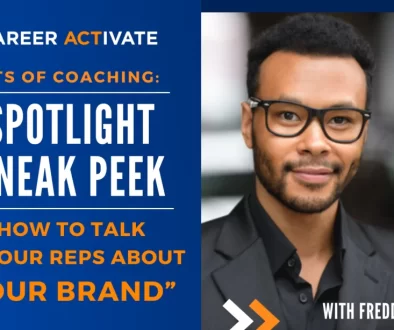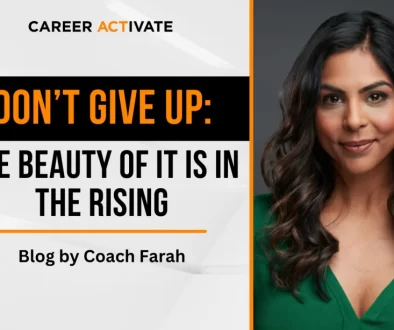How To Know When You’ve Found The One…Agent Or Manager Who’s Right For You
How To Know When You’ve Found The One…Agent Or Manager Who’s Right For You
So you’re a free agent on the prowl for new representation. You’ve made your outreach list, brainstormed some solid opening lines, slid into a few DMs to test the waters, and adequately stalked your targets on the socials. It’s time to shoot your shot.
Hold on. Before you dip your toe into the representation dating pool in hopes of connecting with the rep of your dreams, there’s one thing on which you absolutely need to have clarity.
What is it you’re really looking for?
Yes, obviously you want new representation. But what is it that you specifically want out of this relationship?Often actors scroll through IMDb to find a match, go on a few dates, and eventually settle down with a rep (Yay! Congrats!!), only to find months or years down the line that this partnership can’t be sustained due to irreconcilable differences.It’s best to be clear and upfront from the beginning as to what it is you need out of this relationship, so you don’t enter into the wrong one. Just like in dating, you’re unlikely to get ideal results by swiping right on everyone. You ultimately just want a right swipe from the person that’s right for you. How do you know when you’ve found The One?Here are a few things to consider when deciding whether a potential rep is worth the monogamy.
How many other people are they currently seeing?
Do you want a boutique company with a small roster, ex. A manager who works alone and has a roster of 30, or an agency with 100 clients? Or would you want to partner with a large company that has hundreds of clients shared between teams of multiple reps?
Are they down for an open relationship?
As in…are they open to sharing you with reps in other regions? Some reps split commission between them. This is a topic to bring up if you’re a local hire in other cities and are considering, or may already have, reps in other markets.
How do they view their role in your partnership?
Every agent and manager has different expectations when it comes to the part they play in a client’s career. Agent roles are, for the most part, pretty straightforward- they pitch you to potential clients and negotiate contracts.Managers can vary greatly in how they view and execute their roles. Some managers help develop your materials and set you up with agents that will get you auditions. Other managers are more hands-on and will also pitch you themselves. Some want to be involved in all areas of your career, some just focus on the theatrical aspect.Be clear on what would be most helpful to you.
Who else are they currently seeing?
What level of actors would you like to see on their roster? Would you want to be a developmental version of someone they already work with? This could be an advantage if the celebrity version of you passes on roles you’re also right for.Are you interested in a company that also has a lit department? That represents directors/producers/writers as well as actors?
Will they make you sign a contract?
Run. Just kidding. Kind of. But at least know what terms you’re willing to agree to. Anything can be negotiated, including the existence of a contract itself, but the most commonly negotiated terms are:
- What and how much reps commission.
- On-camera agents commission 10% in their respective departments. Managers vary between 10%-15% and may either commission just theatrically, or across the board.
- Length of the contract. Some might give you an easy out in the first few months if either party decides it’s not working. Look out for contracts that automatically renew for the same duration if no written notice is given.
What is their expectation of you?
I have friends who were formerly repped by large, celebrity-filled agencies and said they auditioned for great roles non-stop for 3 months, but when they didn’t book a series regular in that time, they got dropped from the roster. Yikes. That’s a lot of pressure. How would your ideal partner handle a booking slump? What would they realistically expect of you, and is this something you feel you can manage?
Who are their friends?
If your ultimate goal is to be a series regular on a half-hour sitcom, you’re more likely to have success if your rep has great contacts in the comedy world.A good question to ask in a meeting would be, “Which offices most often call your clients in to audition?”You can also research on IMDb to see what their clients have recently booked.Even if you’re not looking for an LTR with your next rep, working with one that has connections in line with your long term goals can help you land the bookings you need to get to where you want to be.
What do their exes have to say about them?
If you know anyone who’s previously been represented by them, get the dirt. Why didn’t it work out? Is their answer to this question something you can work with? Know that people grow and change, and your relationship might be completely different from the experience of this particular ex(-client). But it’s always a good idea to be aware of potential red flags before committing.
What’s their communication style?
Any successful relationship requires clear communication. How communicative would you like your reps to be? Some want to chat with clients monthly, others are super accessible via DM, and some communicate on an as-needed basis (read: only when you book). What’s your ideal (but realistic) turnaround time if you reach out via phone or email?
Before you seek out a partner, answer these questions honestly for yourself, and rank them in order of importance. Not all of these elements will hold equal weight. Then, assess the reps you’re considering in terms of how well they fit what’s most important to you at this stage of your career.
This will help make sure you don’t settle for someone that’s wrong for you just because they’re willing and available.
Ugh. We’ve all been there.Also, if you want tips on how to partner with a great rep now, sign up for Jona’s free online class, coming up soon (click the banner):
— Coach Melody




